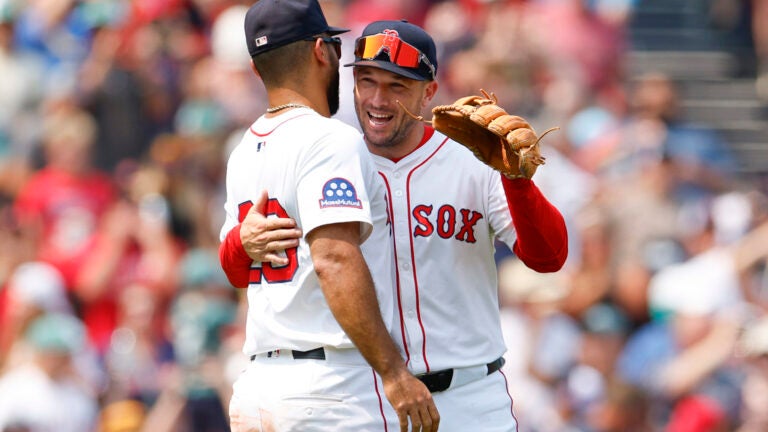The narrative surrounding the Boston Red Sox franchise in recent years has often been one of unfulfilled potential and questionable asset management. While the club successfully navigated a brief period of contention, the overall direction has been marred by critical personnel decisions that have alienated the fanbase and hampered long-term stability. Few impending actions threaten to crystallize this instability quite like Alex Bregman’s decision regarding his contract opt-out, a scenario poised to make a prior, brutal trade look even more catastrophic.

Alex Bregman was signed by the Red Sox prior to the 2025 season to a three-year, $120 million contract—a short-term, high-Annual Average Value (AAV) deal intended to be a "pillow contract." The agreement provided the team with immediate elite talent and gave Bregman the flexibility to re-enter the market for a long-term mega-deal if he performed well. After a strong season in Boston, marked by high offensive production and clubhouse leadership, the outcome is virtually certain: Bregman is expected to exercise his right to opt out, seeking a contract that provides greater long-term security and total value.
The loss of Bregman after just a single season would be detrimental enough on its own, but it gains a sinister context when viewed through the lens of one of Chief Baseball Officer Craig Breslow’s most criticized early moves: the trade of veteran pitcher Chris Sale to the Atlanta Braves for infielder Vaughn Grissom.
The Collapse of the Chris Sale Trade

The Sale-for-Grissom trade was intended to clear Sale's significant salary commitment while acquiring a promising young middle infielder in Grissom, who theoretically could fill a hole at second base. At the time, the rationale was defensible: Sale was expensive and injury-prone. However, the outcome was disastrous. Sale quickly found renewed success and health in Atlanta, while Grissom profoundly struggled in Boston, demonstrating significant defensive shortcomings and failing to cement himself as an everyday player. The trade quickly earned the distinction of being a painful loss of a star veteran for an unproven, struggling asset.
The failure of Grissom to solidify the middle infield is the direct thread connecting the past blunder to the present crisis. When Grissom faltered, the Red Sox were forced to overcompensate by signing a high-priced mercenary in Bregman to inject immediate star power and production into the infield. Bregman was the expensive band-aid applied to a wound created by the Grissom acquisition.
The Amplifying Effect of the Opt-Out

If Bregman now walks away in free agency, the negative ripple effect on the organization becomes brutally evident. The Red Sox will have traded away a quality pitcher (Sale) for a non-performing player (Grissom), and then signed the league’s most sought-after infielder (Bregman) only to lose him one year later.
The team is left in an even worse position than where they started. They still have the lingering financial commitment to Grissom or the burden of finding a trade partner for him. They still have the hole at second base, and now they have a massive, immediate vacancy at third base, where Bregman had been the anchor. Furthermore, the short-term nature of the Bregman deal meant the Red Sox forfeited a high draft pick as a penalty for signing a player who declined a qualifying offer—a strategic cost that only makes sense if the player stays for the duration of the contract or signs an extension.
The decision by Bregman highlights a larger, more chronic ailment within the Red Sox management philosophy: the inability to secure and retain generational talent, a failure still haunting the franchise after the Mookie Betts trade years prior. When the team commits to bringing in a superstar, it must be for a meaningful, stabilizing duration. Losing Bregman after one year reinforces the perception that Fenway Sports Group is unwilling or unable to meet the market value required to keep elite players in the long term.
For the Red Sox fanbase, the imminent opt-out serves as a stark reminder of the ongoing fallout from the Sale trade. What began as a strategic, albeit risky, trade to manage payroll has morphed into a catastrophic domino effect: the failure of the acquired piece forced an expensive, temporary fix, and the departure of the fix leaves the team with diminished assets, a major hole in the lineup, and an even more critical question mark surrounding their competitive window.
Ultimately, Bregman’s decision is merely sound business for him, but for the Boston Red Sox, it represents the potential climax of a series of missteps, threatening to turn the already "brutal" Chris Sale trade into a compounding organizational disaster.
